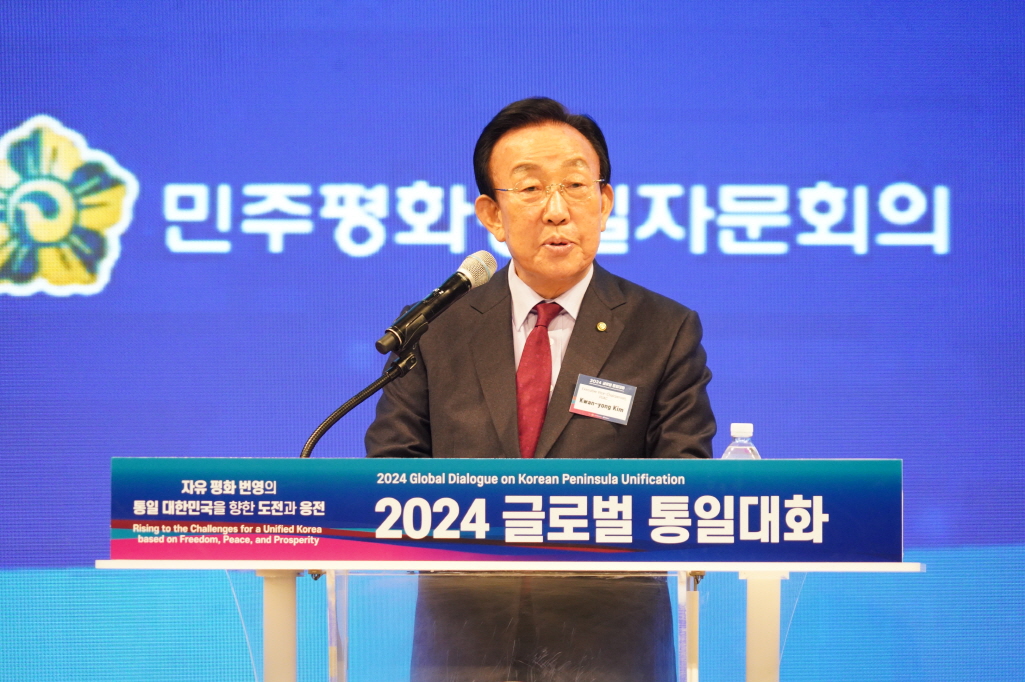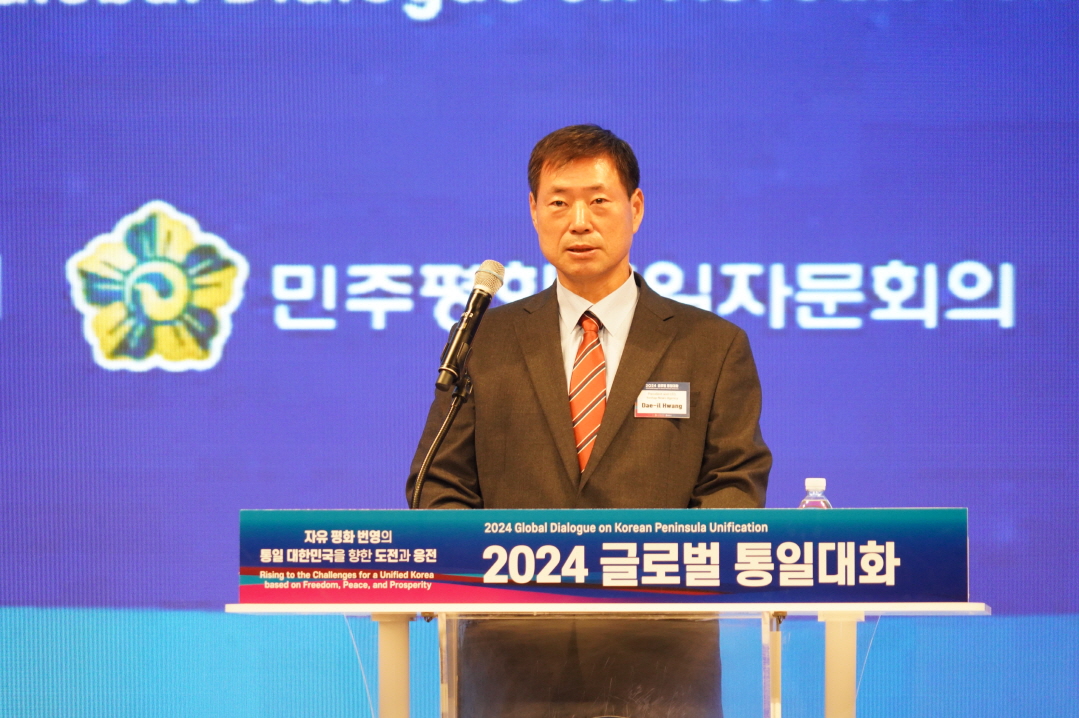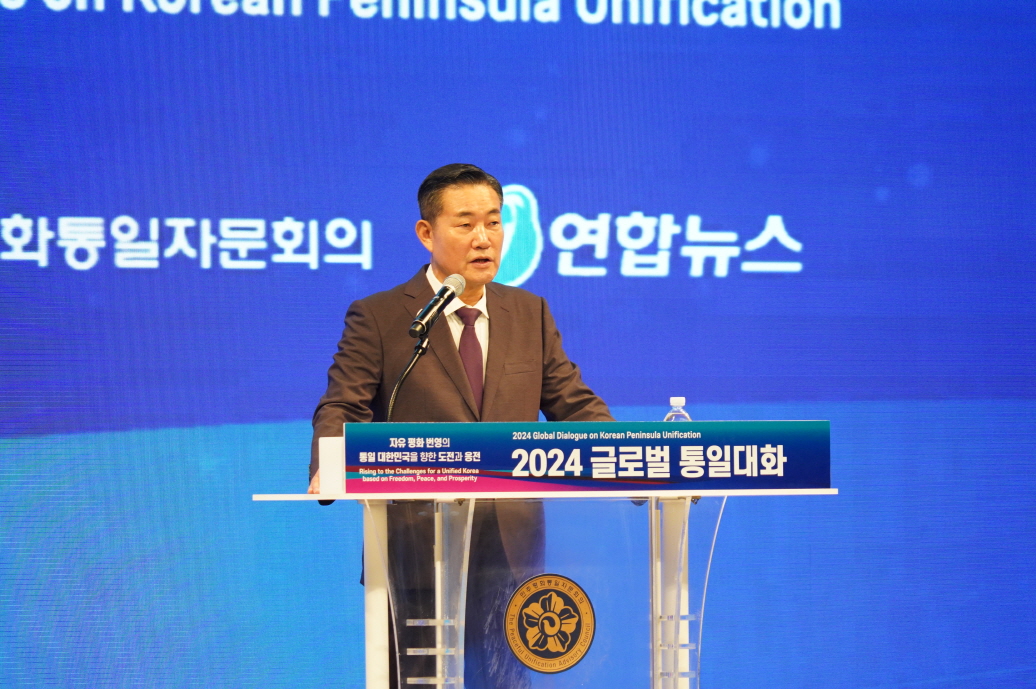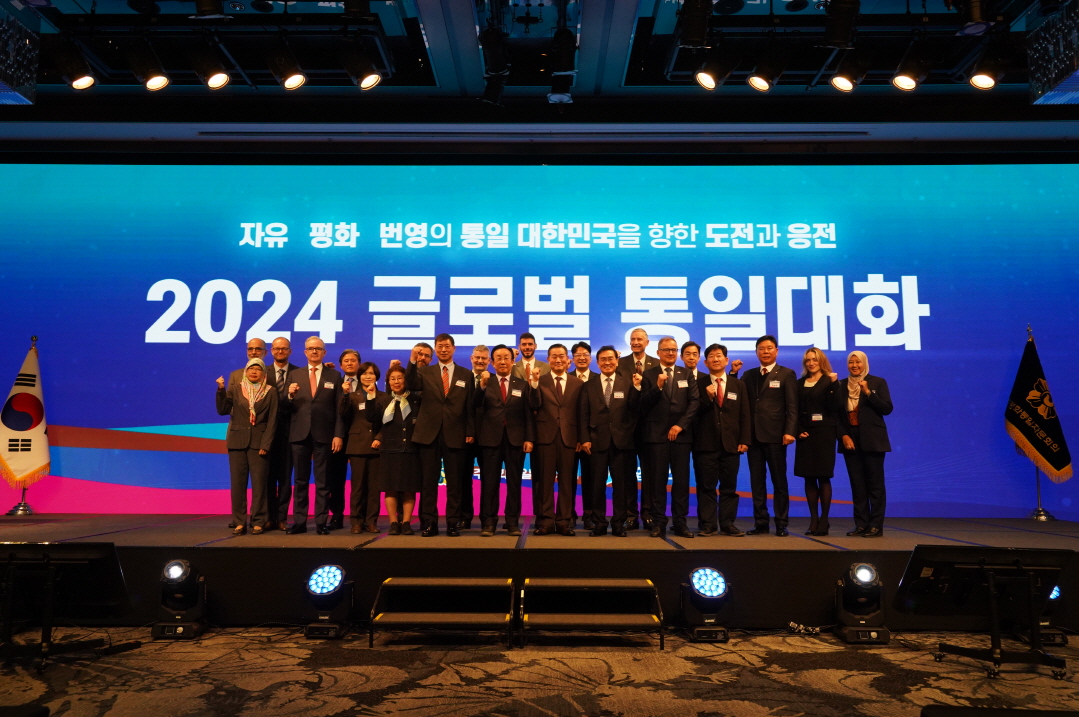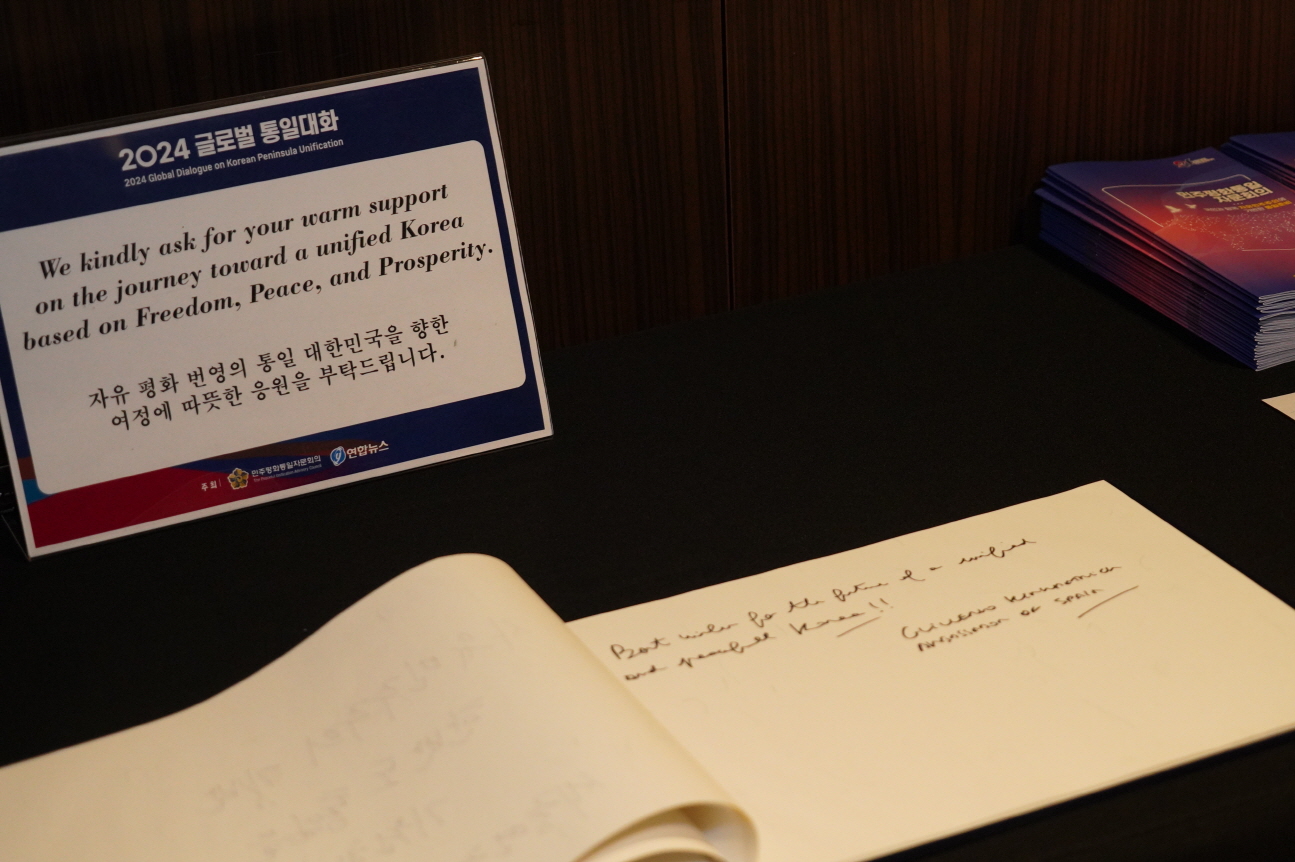2024 Global Unification Dialogue (International Conference)
- Program Planning Division
- 11-13-2024
2024 Global Unification Dialogue (International Conference)
The PUAC(Executive Vice-chairperson Kim Kwan-yong, Secretary General Tae Yong-ho)and Yonhap News Agency co-hosted the ‘2024 Global Unification Dialogue’ at the JW Marriott Dongdaemun Hotel in Seoul on November 11 and 12 under the theme of ‘Challenges and Responses Towards a Free, Peaceful and Prosperous Unified Korea’.
The two-day meeting was held in a closed session on the first day and an open session on the second day.
In the first-day closed session, experts made in-depth discussions of the situation in East Asia and policy changes on the Korean Peninsula after the U.S. presidential election, the emergence of the MZ generation and changes in North Korea, changes in the unification environment and national unification consciousness, and the outlook for the North Korean situation in 2025.
On the second day, the forum offered three open sessions, which followed an opening ceremony.
In his opening remarks, Executive Vice-chairperson Kim Kwan-yong said, “Unification remains in a long, dark tunnel in the midst of an international situation undergoing a geopolitical transition.” “The international community's cooperation is more urgent than ever in the current situation where North Korea is locking its doors,” Kim said.
(Executive Vice-chairperson Kim Kwan-yong delivering opening remarks)
In his welcome speech, Hwang Dae-il, CEO of Yonhap News Agency, co-host of the conference, said, “As the new U.S. government's policy on the Korean Peninsula is likely to be different, we need to prepare more thoroughly than ever before. As a national news agency, Yonhap will continue to make unremitting efforts for the freedom, peace and prosperity of Korea.”
(Hwang Dae-il, CEO and President of Yonhap News Agency, delivering a welcome speech)
PUAC Secretary General Tae Yong-ho pointed out that “Since the Kim Jong-un regime announced its hostile two-state theory, it has cut off all channels and avenues of communication and exchange, and upgraded its nuclear and missile capabilities, and used its conventional war power outside the Korean Peninsula to Ukraine. The issue of unification is not just a matter between the two Koreas, but has become an international issue that directly affects world peace and stability.”
(PUAC Secretary General Tae Yong-ho delivering remarks)
Finally, in his keynote lecture, National Security Adviser Shin Won-sik said that “South Korea is no longer a unilateral beneficiary of the U.S.-ROK alliance. We will continue to defend our core interests as a partner with the capabilities to contribute to regional and global security and prosperity.”
(National Security Adviser Shin Won-sik delivering the keynote lecture)
The opening ceremony drew ambassadors, diplomats, researchers and heads of social organizations, reflecting their keen interest in the Korean Peninsula issues. They included: Spanish Ambassador Guillermo Kirkpatrick, Finnish Ambassador Jyri Järviaho, Czech Ambassador Ivan Jancarek, Brunei Ambassador Pengiran Nooriyah, Latvia Ambassador Janis Berzins, Minister at the German Embassy Joern Beissert, Deputy Chief of Mission at the Japanese Embassy Taisuke Mibae, and Deputy Head of Mission at the Slovak Embassy Marian Adam.
(Group photo of key figures attending the opening ceremony)
(Guestbook for peace and prosperity on the Korean Peninsula)
In the first session that followed the opening ceremony, Bruce Bennett (Senior Defense Analyst at Rand Corporation) and Jung Sung-yoon (Head of Unification Policy at the Korea Institute for National Unification) gave presentations on the topic of “Challenges and Responses to the Changing International Situation and Free unification,” and Junya Nishino (Director of the Center for Contemporary Korean Studies at Keio University) and Choi Woo-seon (Professor at the Korea National Diplomatic Academy) participated as panelists.
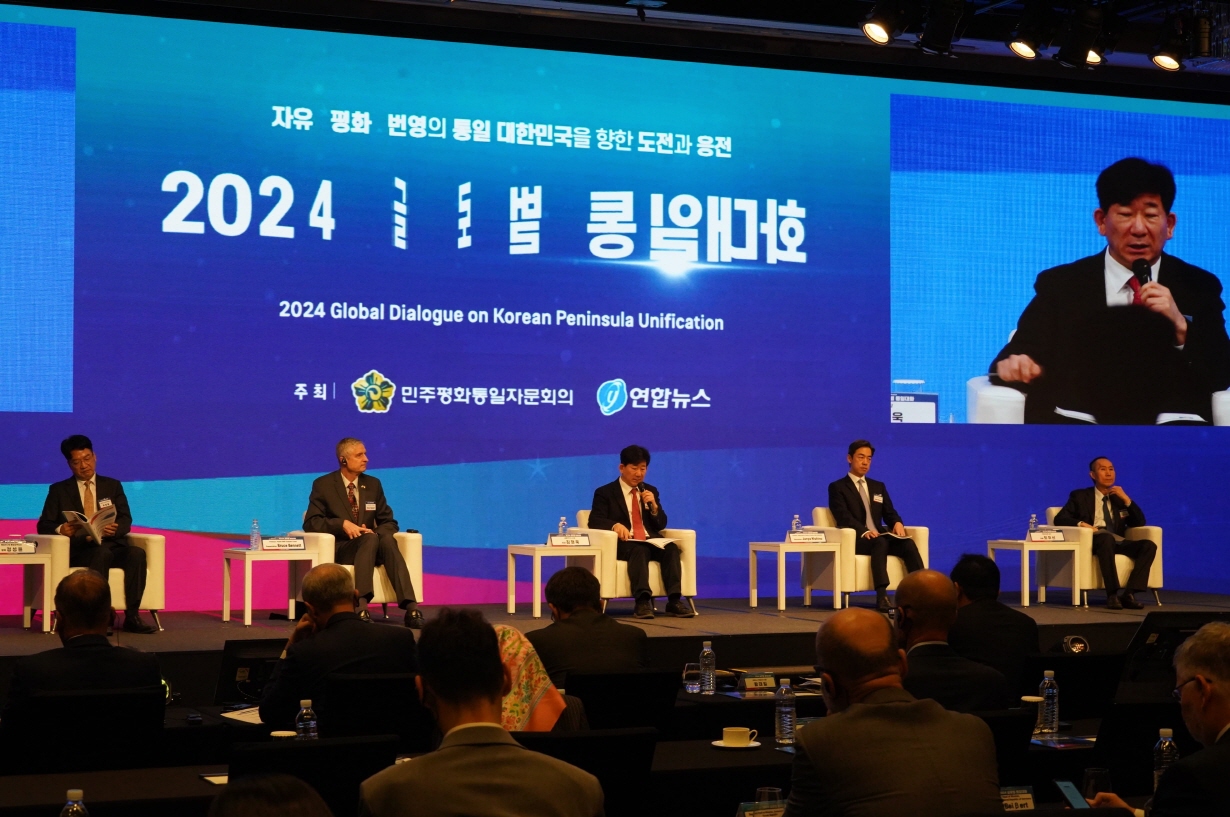
(From left: Jung Sung-yoon, Bruce Bennett, Kim Hyun-wook, Junya Nishino, and Choi Woo-seon)
The Session Two, whose theme was “Expanding Access Right to Information and Human Rights in North Korea,” included presentations by Park Seok-gil (South Korea representative of LiNK) and Lee Kyu-chang (Director of Human Rights Research at the Kora Institute for National Unification), and discussions by Rouslan Kats (Counselor at the Embassy of Canada in Seoul), Ri Il-gyu (former counsellor at the Embassy of North Korea in Cuba), and James Heenan (Head of the UN Human Rights Office in Seoul).

(From left: Lee Kyu-chang, Park Seok-gil, Oh Jun, Rouslan Kats, Ri Il-gyu, James Heenan)
In the Session Three, whose theme was “The August 15 Unification Doctrine and International Cooperation,” presentations were made by Mason Richey (Hankuk University of Foreign Studies) and Park Won-gon (Ewha Womans University), and panel discussions were made by Doo Jin-ho (Director of Global Strategy Division, Korea Institute for Defense Analyses), Park Byung-kwang (Senior Research Fellow, Institute for National Security Strategy), and Brian Myers (Professor, Dongseo University).
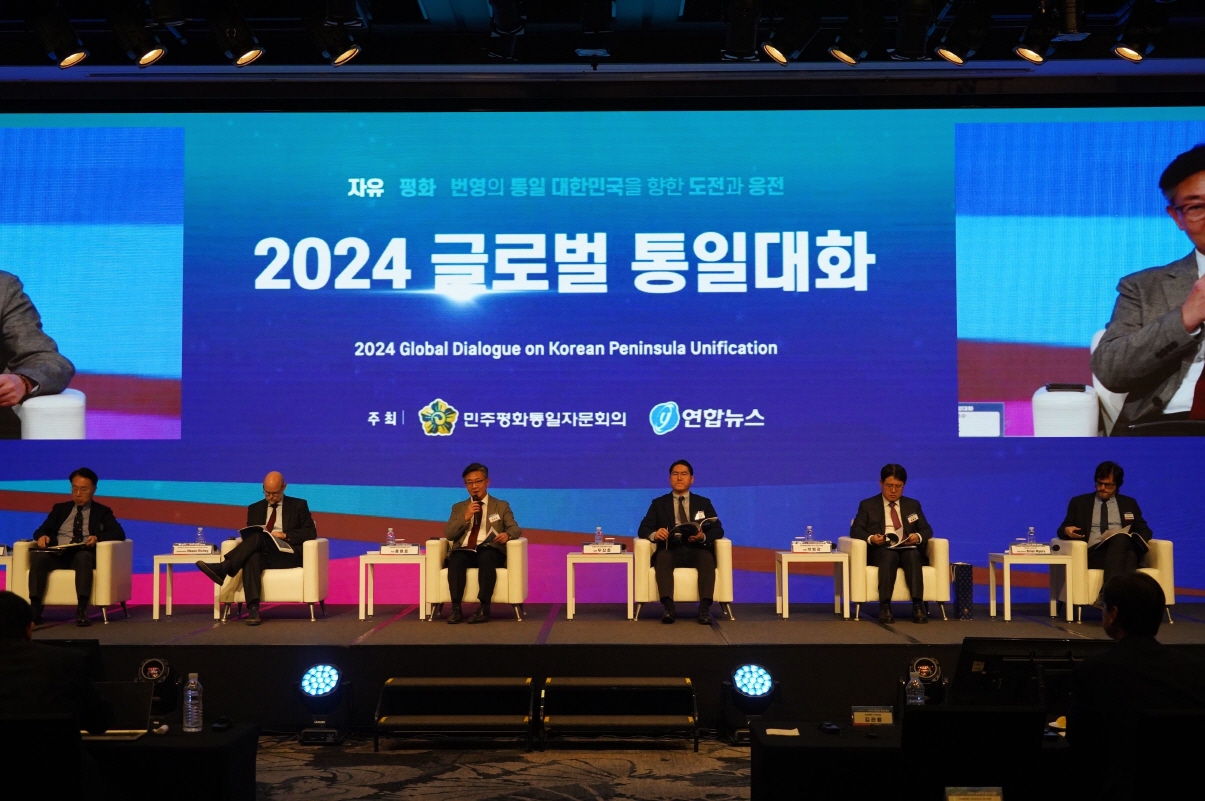
(From left: Park Won-gon, Mason Richey, Hong Yong-pyo, Doo Jin-ho, Park Byung-kwang, and Brian Myers)
The conference was livestreamed on YouTube to accommodate those who were unable to attend.
-
How satisfied are you with the information you have reviewed?




